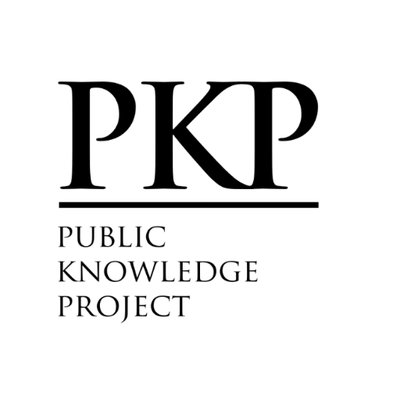Banking deregulation and financial stability in emerging countries
DOI:
https://doi.org/10.59051/joaf.v2i1.9Keywords:
deregulation, banks, movement of capital, financial stability, financial crisesAbstract
Banking deregulation was initiated by the developed countries from the 1960s onwards and increased during the 1980s by emerging and developing countries. In addition, recent decades have been marked by major banking crises. Hence the question about the link between deregulation of banks and recent crises.
This article first presents the literature that has studied the link between financial liberalization and the stability of banks. It studies at the same time the case of developed and emerging countries, but no study has exclusively covered a large sample of emerging countries. The rest of the article presents an empirical model for estimating the effect of financial liberalization on the probability of banking crises. This study requires the preliminary construction of financial liberalization indices that have been developed according to the classical (binary) method and according to another more precise method (AFD) and which, to our knowledge, has never been used before in this field. The results of the estimates show a strong correlation between liberalization indices and the probability of a banking crisis.
Downloads
References
Allégret, J.P., R. Sandretto, C. Wyplosz & J. Ruffeier, (Mai, 2003), « La taxe Tobin », compte-rendu de la conférence « Mondialisation de l’économie - mondialisation de l’impôt ? Pour une taxe Tobin ». Lundi 9 novembre, CNUCED, Lyon, publié le 16 mai 2003.
www.2.ac-lyon.fr/enseigne/ses/vie/terminale/lataxe.html
Almunia, M., A. S. Bénétrix, B. Eichengreen, K. H. O’Rourke, & G. Rua (oct., 2009), « From great depression to great credit crisis: similarities, differences and lessons», presented at the 50th Economic Policy Panel Meeting, 23-24 October. www.tcd.ie/iiis/documents/discussion/pdfs/iiisdp303.pdf
Auboin, M., (2009), « Trade Finance: G20 and Follow-Up». http://www.voxeu.org/index.php?q=node/3635
Barth, J. R., G. Caprio, Jr. & R. Levine, (April, 2000), « Banking systems around the globe: do regulation and ownership affect performance and stability? », World Bank Development Research Group, working Paper, N°. 2325.
Barth, J. R., G. Caprio, Jr. & R. Levine, (Nov., 2001), « Financial regulation and performance: cross-country evidence ». Central Bank of Chile. Working Papers N° 118.
Berkman, S. P., G. Gelos, R. Rennbeck & J. P. Walsh, (March, 2010), «The global financial crisis: Why were some countries hit harder? », VoxEU.org.
Bernou, N. & M. Grondin, (2000), « Quel mode d’ouverture financière pour les pays en développement ? Les spécificités d’un système bancaire efficacement réglementé », GDR économie financière, Tunis, 22 et 23 juin 2000.
Ben Gamra, S. & D. Plihon, (2007), « Politiques de libéralisation financière et crises bancaires », Économie internationale 112, p. 5-28.
Burnsid, C., M. Eichenbaum & S. Reblo, (May, 1999), « Hedging and financial fragility in fixed exchange rate regimes », National Bureau of Economic Research, Working Paper N° 7143.
Calomiris, C. W., (winter, 2009), « Financial innovation, regulation, and reform», Cato Journal, Vol. 29, No. 1.
Calvo G., (Feb., 1998), « Balance of payments crises in emerging markets: large capital inflows and sovereign governments », NBER Conference on Currency Crises, Cambridge, MA.
Caprio, G. & D. Klingebiel, (1997), « Bank insolvency: bad luck, bad policy, or bad banking? » In Michael Bruno and Boris Pleskovic, eds., Annual World Bank Conference on Development Economics 1996. Washington, D.C.: World Bank.
Caprio, G. & D. Klingebiel, (Jan., 2003), « Episodes of systemic and borderline financial crises », mimeo. The World Bank Group.
Caprio, G., (June, 1998), « Banking on crises: expensive lessons from recent financial crises ». The World Bank Group.
Chang, R. & A. Velasco, (June,1998), « Financial crises in emerging markets: a canonical model », NBER Working Paper Series, Working Paper 6606, National Bureau of Economic Research, 1050 Massachusetts Avenue, Cambridge, MA 02138.
Chinn, M. & K. Kletzer, (2000), « International capital inflows, domestic financial intermediation and financial crises under inperfect information ». Working Paper, N° 7902.
Coricelli, F., (May, 2010), « The crisis and the developing countries», VoxEU.org.
Cuñado, J., J. G. Biscarri & F. P. de Gracia, (2006), « Changes in the dynamic behavior of emerging market volatility: revisiting the effects of financial liberalization », emerging Markets Review, N° 7, pp. 261-278.
Dekle, R. & K.M. Kletzer, (June, 2001a), « Domestic bank regulation and financial crises: theory and evidence from East Asia », NBER WP 8322.
Dekle, R. & K.M. Kletzer, (2001b), « Discussion of: domestic bank regulation and financial crises: theory and evidence from East Asia».
www.nber.org/books/ccprevent/discussion_domestic.pdf
Demirgüç-Kunt, A. & E. Detragiache, (1997), “The determinants of banking crises: evidence from developing and developed countries”. IMF Working Papers, N° 106.
Demirgüç-Kunt, A. & E. Detragiache, (1997), « The determinants of banking crises: evidence from developing and developed countries ». IMF Working Papers, N° 106.
Demirgüç-Kunt, A. & E. Detragiache, (1998a), « Financial liberalization and financial fragility », IMF Working Papers, N° 83.
Demirgüç-Kunt, A. & E. Detragiache, (March, 1998b), « The determinants of banking crises in developing and developed countries », IMF Staff Papers, N°45, pp.81-109.
Demirgüç-Kunt, A. & E. Detragiache, (1999), « Monitoring banking sector fragility: a multivariate logit approach with an application to the 1996-97 banking crises ». World Bank, Working Papers.
Demirgüç-Kunt, A. & E. Detragiache, (June, 2000a), « Does deposit insurance increase banking system stability? An empirical investigation », World Bank Development Research Group, Paper for Deposit Insurance Conference.
Demirgüç-Kunt A. & E. Detragiache, (Mars, 2005), « Cross-country empirical studies of systemic bank distress: a survey ». IMF
Demirgüç-Kunt, A. & R. Levine, (1996), « Stock markets, corporate finance, and economic growth: an overview », The World Bank Economic Review, vol. 10, N° 2, pp. 223-239.
Diaz-Alejandro, C., (1985), « Good-bye financial repression, hello financial crash », Journal of Development Economics, vol. 19, p.1-24.
Edwards, S., (July, 1999), « On crises prevention: lessons from Mexico and East Asia », NBER Working Paper Series, Working Paper, N° 7233, National Bureau of Economic Research, 1050 Massachusetts Avenue, Cambridge, MA 02138.
Edwards, S. & J. Frankel, editors, (2002), Preventing currency crises in emerging markets. National Bureau of Economic Research, The University of Chicago Press.
www.nber.org/books/ccprevent/introduction7-14-01.pdf
Eichengreen, B., & A. K. Rose, (1998), « Staying afloat when the wind shifts: external factors and emerging-market banking crises », CEPR Discussion Papers 1828, C.E.P.R. Discussion Papers.
Eichengreen, B. & C. Arteta, (2000), « Banking crises in emerging markets: presumptions and evidence » Working Paper, No. 115, University of California, Berkeley.
Eichengreen B. & M. Bordo, (2001), « Crises and then: what lessons from the last era of financial globalisation? » unpublished paper, University of California at Berkeley and Rutgers University.
Feldstein, M., (2002), « Economic and financial crises in emerging market economies: overview of prevention and management ». Working Paper, N° 8837.
Felton, A., & C. M. Reinhart, (2008), «The first global financial crisis of the 21st century», A VoxEU.org Publication.
http://www.voxeu.org/reports/subprime/report.pdf
Fujing,Y., (2007), « Financial opening and financial security »,Chinese Journal of International Politics, Vol. 1, pp. 559–587.
Giannetti, M., (2007), « Financial liberalisation and banking crises: the role of capital inflows and lack of transparency », Journal of Financial Intermediation, N° 16, pp. 32-63.
Glick, R. & M. Hutchison, (1999), « Banking and currency crises: how common are twins? » Working Paper N° PB99-07. Pacific Basin Working Paper Series.
Goldstein, M. & P. Turner, (Oct., 1996), « Banking crises in emerging economies: origins and policy options », BIS Economic Papers, N° 46.
Hardy, D. & C. Pazarbasioglu, (June, 1998), « Leading indicators of banking crises: was Asia different? », IMF Working Paper N° WP/98/91.
Hardy, D. & C. Pazarbasioglu, (Sep-Dec., 1999), « Determinants and leading indicators of banking crises: further evidence? », IMF Staff Papers, vol. 46, N° 3.
Helbling, T., (2009), «How Similar is the Current Crisis to the Great Depression? » http://www.voxeu.org/index.php?q=node/3514
Huang, H. & S. Kal Wajid, (Mars, 2002), « Financial stability in the world of global finance », A Quarterly magazine of the IMF, Finance & Development, vol. 39, N° 1.
http://www.imf.org/external/np/fsap/2001/review.htm
Hutchison, M. & K. McDill, (Sep., 1999), « Are All Banking Crises Alike? The Japanese Experience in International Comparison », Journal of the Japanese and International Economies, vol. 13, Issue 3, pp. 155-180.
Ikhide, S.I. & A.A. Alawode, (Nov., 2001), « Financial sector reforms, macroeconomic instability and the order of economic liberalization: the evidence from Nigeria ». AERC Research Paper 112. African Economic Research consortium, Nairobi.
King, R. & R. Levine, (Jan., 1992), «Financial Indicators and growth in a gross section of countries », World Bank Working Paper N° 819, Washington: World Bank.
King, R. & R. Levine, (1993a), «Finance and growth: Schumpeter may be right», Quarterly Journal of Economics, N° 108, pp. 717-737.
King, R. G. & R. Levine, (1993b), « Finance, Entrepreneurship, and Growth: Theory and Evidence », Journal of Monetary Economics, 32, pp. 513-542.
Levine, R., (2004): « Finance and growth : theory and evidence ». Carlson School of Management, University of Minnesota and the NBER. Prepared for the Handbook of Economic Growth.
The International Organisation of Securities Commissions, (Sep., 1998), « Causes, effects and regulatory implications of financial and economic turbulence in emerging markets ». Emerging Markets Committee, Interim Report.
Maddala, G.S., (1983), Limited-dependent and Qualitative Variables in Econometrics, Cambridge University Press.
Mehrez, G. & D. Kaufmann, (2000), « Transparency, liberalization and banking crises ». World Bank Working paper, N° 2286.
Moghadam, R., (April, 2010), « Emerging market countries and the crisis: How have they coped? », VoxEU.org.
Noy, I., (2004), « Financial liberalisation, prudential supervision, and the onset of banking crises », Emerging Market Review, vol. 5, p.341-359.
Ootiz, G., (2002), « Recent emerging market crises: what have we learned? », The Per Jacobsson Foundation, Basel, Switzerland, July 7.
Reenen, J. V., (May, 2010), «Financial regulation: Can we avoid another great recession? », VoxEU.org.
Reinhart, C., (April, 2008). « Eight hundred years of financial folly », VoxEU.org.
Rossi, M., (May, 1999), « Financial fragility and economic performance in developing economies: do capital controls, prudential regulation and supervision matter? », IMF Working Paper WP/99/66.
Vidal, G. & E. Correa, (Oct., 1997), « deregulation and risks in financial markets »; Working Paper Series.
Weller, C.E., (1999), « Financial crises after financial liberalization: exceptional circumstances or structural weakness? » Center for European Integration Studies. Working Paper B15.
Wyplosz, C., (Sep., 2001), « How risky is financial liberalization in the developing countries? » G-24 Discussion Paper Series, Research papers for the Intergovernmental group of twenty-four on International Monetary Affairs. Center For International Development Harvard University. United Nations. N° 14.
Downloads
Published
How to Cite
Issue
Section
License
Authors who publish with this journal agree to the following terms:
- Authors retain copyright and grant the journal right of first publication with the work simultaneously licensed under a Creative Commons Attribution License that allows others to share the work with an acknowledgement of the work's authorship and initial publication in this journal.
- Authors are able to enter into separate, additional contractual arrangements for the non-exclusive distribution of the journal's published version of the work (e.g., post it to an institutional repository or publish it in a book), with an acknowledgement of its initial publication in this journal.
- Authors are permitted and encouraged to post their work online (e.g., in institutional repositories or on their website) prior to and during the submission process, as it can lead to productive exchanges, as well as earlier and greater citation of published work (See The Effect of Open Access).






















